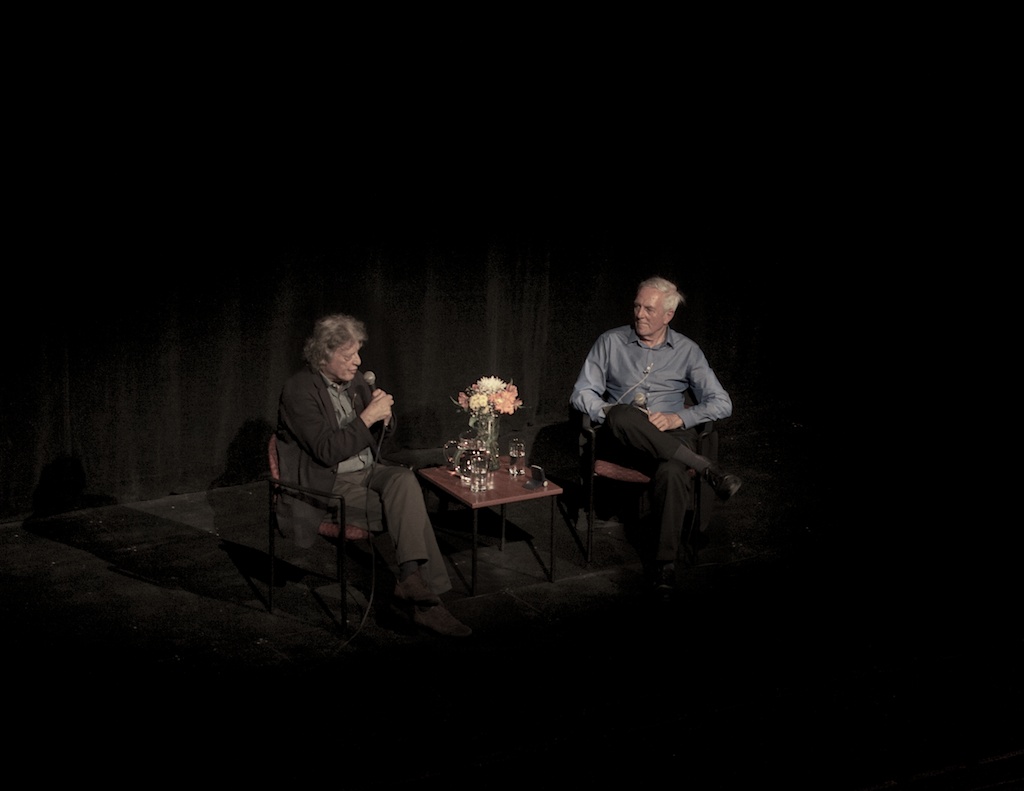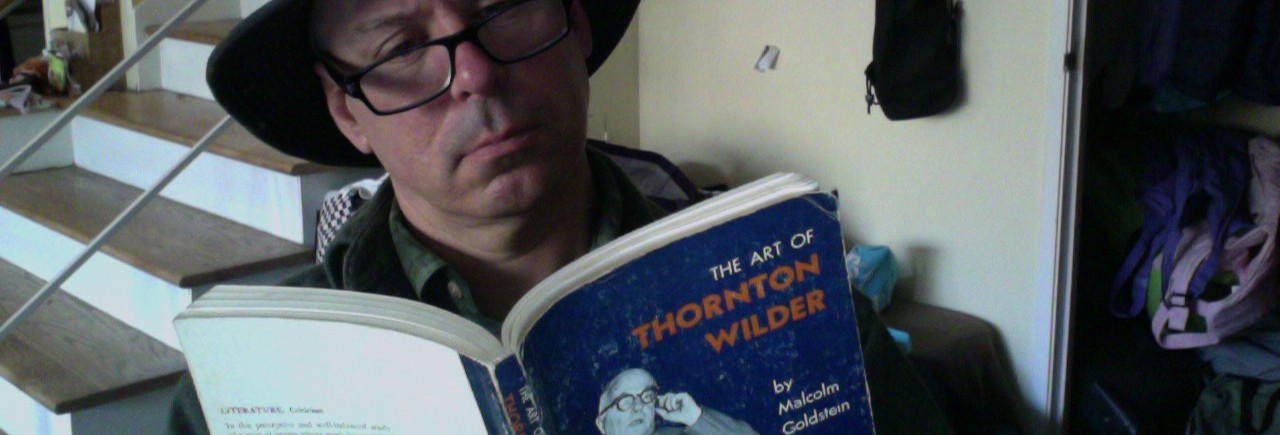
I covered Tom Stoppard’s talk at Yale Monday evening for the New Haven Independent, here. It’s a lengthy piece, greatly enhanced by the photography of Phil Rosenthal (whose photos also grace this page). I’d just as soon you read it there rather than have me recap it here. But there is a bit more to say.
I was disappointed that this was a “conversation with” event rather than a full-fledged speech, since I’ve seen Stoppard speak—at Yale, in fact—and he’s a self-starter. Doesn’t need to be prodded with question. Doesn’t need to be kept on topic. Is concerned with keeping the audience’s attention, even though he’s simply fascinating and doesn’t need to be concerned at all.
There were dashes of longform full-blown Stoppard on Monday, but they were defused by questions that seemed designed to tell the audience who he was as much as what he was about. That audience—which seemed to consist of every theater geek I know in New Haven, plus every student at the Yale School of Drama or the undergrad Theater Studies department—didn’t need filters and signposts. They knew what they were there to see.
Pity that what might have been an unfettered Stoppard speech became a glorified theater talkback, replete with the usual self-serving questions from the audience at the end.
There was a woman who had no real question, and just wanted to be heard comparing Stoppard to Oscar Wilde. She cited similarities in one of his works, but didn’t seem to know of Travesties or The Invention of Love, which evoke Wilde loudly and unambiguously. She also called him “hilariously witty,” which seems like an oxymoron or a redundancy or something.
Other questioners from the audience simply wanted to show that they’d appreciated what they perceived as some obscure literary reference in Stoppard’s works. The worst of these was a guy who began his query: “So, Tom… Hey!” He asked why, in The Real Thing, Stoppard referenced ‘Tis a Pity She’s a Whore rather than, say, something by Shakespeare. The implication was that the playwright had purposely gone for some little-known title, and the further implication was that this “So, Tom…” interrogator was clever enough to have accessed it anyhow. Stoppard, graciously but firmly (as was his manner throughout the evening) tamped down the suggestion, saying there was “no especially referential truffle to be dug out” in that instance.
I do get tired of audience members who insist on telling writers that they get their jokes. Such declarations always have an annoying “nudge nudge” Eric Idle quality to them. Yes, we know what you mean. You think you’re smart. But what if you’re boasting about understanding an obscure reference that’s really not that obscure? Like, is there a Drama 101 class that doesn’t mention ‘Tis a Pity She’s a Whore? Is that really a little-known play?
It was interesting to hear Stoppard downplay his interest in music, since specific songs and classical works inform so many of his plays. I think he just wanted to make clear that he wasn’t an expert or a devoted scholar, just a fan. His phrase was “I am not a true aficionado.” It was probably a defense mechanism, in case one of those trivia-savvy audience members planned to invite Stoppard up to their dorm room to hear old jazz records.
Much of Stoppard’s time during the Yale talk seemed to consist of him protesting that he wasn’t as calculating, as precious, or as willfully obscure as his questioners wanted him to be. That’s a tough, humbling place to be stuck in, but he handled it with customary acerbic aplomb. Take his explanation for why he wrote Every Good Boy Deserves Favour, a play which requires a full symphony orchestra:
“I wasn’t on a mad ego trip. I wasn’t unhinged. … I met Andre Previn, who said ‘If you ever write something for a symphony orchestra, I’ve got one.’”
When Murray Biggs, the Yale Theater Studies adjunct professor who interviewed Stoppard for most of the event, quoted the playwright as having said he had more in common with Terence Rattigan than with Robert Wilson, Stoppard could have been strident, or just let that very clear statement stand for itself without annotation. But instead he took a humbling path, admitting that he had in fact “never seen a show by Robert Wilson.” He made sure his initial point was well taken, however, by launching an eloquent defense of the Rattigan, the popular old-school British playwright who was somewhat rudely derided by a lot of writers of Stoppard’s generation. Stoppard felt the disrespect shown Rattigan was unjust, and seemed delighted that there’s been a bit of a renaissance for him and for the similarly maligned Noel Coward.
A lot of Stoppard’s attitude can be put down to dry understated British wit.
What does he look for in an actor? “Clarity of utterance.”
Does he distrust academics? “No. I read lit crit. I like reading about literature as well as reading literature.”
What’s his creative process? “I sit writing with a fountain pen.”
How was it that he was able to come to Yale now? “It was a happy coincidence of occasion.”
It was all expressed with such graceful reserve that if he was in fact gently mocking or shutting down his questioners, it was so subtle as to be unnoticeable, especially to them.
Tom Stoppard is effortlessly arch, funny and abundantly clear. No wonder he digs Terrence Rattigan. And no wonder he hold his own, magnificently, amid the egotistical fawners of Yale.

